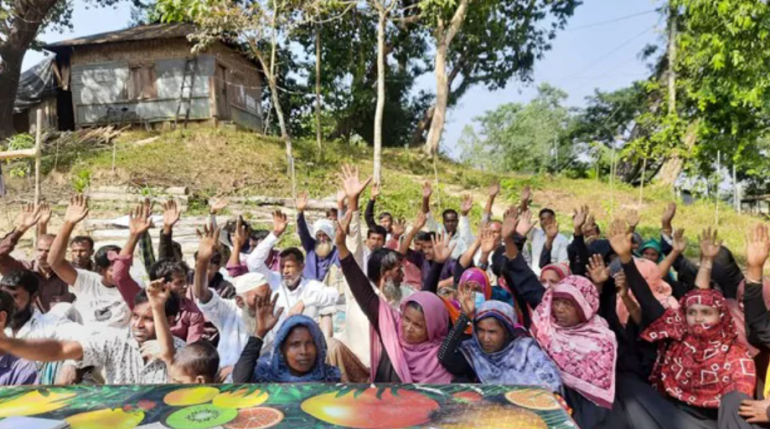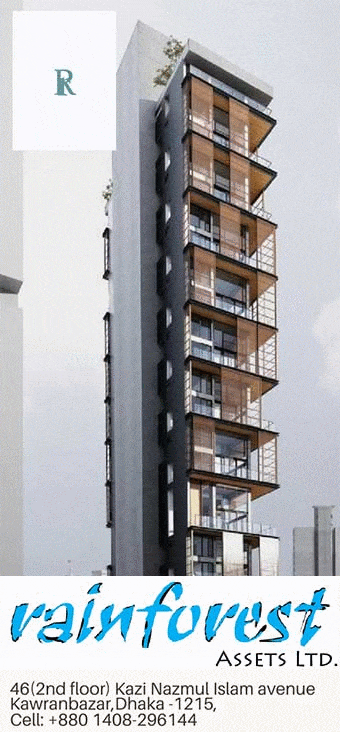
In the last decade, Bangladesh has made rapid social and economic progress, but this has come at the cost of significant environmental damage. The World Bank and the Government of Bangladesh have been working together since 1980 to promote the sustainable use of the environment, natural resources, and the blue economy. The Bank is supporting the government to identify policies and investment options to consolidate the country’s transition toward a green growth development pathway. following the 8th Five Year Plan, Delta Plan, Perspective Plan 2041 and the Mujib Climate Prosperity Plan.
Challenges
The country has made tangible progress in developing environmental policies, guidelines, and legislation. Despite this progress, Bangladesh has faced severe environmental degradation and natural capital loss over the past decades affecting human health, agriculture, forests, fisheries, industrial productivity, and environmental services. It is estimated at least 19 million Bangladeshis are dependent on forests for their livelihoods. Rapid land use changes threaten the country’s remaining forests, a safety net for the poor and in the face of increasing soil salinity in coastal areas, protection against climate change. About half the population also earn their livelihood from 9 million microenterprises, which in turn can impact the environment through various pollutants. Economic loss from environmental degradation stands at approximately $6.5 billion per year, which is 3.4 percent of Bangladesh’s annual GDP. Air and water pollution caused nearly 28 per cent of deaths in Bangladesh. According to Environmental Performance Index (EPI) report, Bangladesh ranked 162nd out of 180 most polluted countries. Given the current scenario, how can the country move towards a more sustainable path?
Approach
With three ongoing projects at a total of $525 million, the Sustainable Forests & Livelihoods Project (SUFAL) the Bangladesh Sustainable Coastal and Marine Fisheries Project (SCMFP) and the Sustainable Enterprises Project (SEP) is working to shape a strong growth trajectory for the country’s sustainability goals.
SUFAL with the Bangladesh Forest Department is helping to restore degraded forest ecosystems and conserve biodiversity. In selected sites in 600 villages across 165 Upazilas, this is being done through sustainable forest management practices to enhance carbon sequestration, ecosystem services, livelihood opportunities, and climate change resilience in certain forest areas of Bangladesh.
The SCMFP project with the Ministry of Fisheries and Livestock supports Blue Economy development through increasing coastal and marine fisheries’ contribution to the economy, poverty reduction, and environmental stability in 450 villages in 10 coastal districts.
The SEP, in partnership with the Palli-Karma Sahayak Foundation, helps about 50,000 microenterprises in 37 districts to adopt environment-friendly practices and occupational health and safety measures in the manufacturing and agribusiness sectors. By providing loans to microenterprises, it helps to adopt innovative, environmentally sustainable technologies and practices.
In addition, the Bank is conducting several studies to identify policy and investment reforms which will estimate the cost of environmental degradation, as well as analyze key interventions to address environmental priorities. Support will also be provided for the country’s environmental governance framework, air quality management, plastic waste management, conservation of natural resources, as well as creating opportunities for green financing.
I find people who are hurting the forest and convince them to do other things. My husband used to cut trees to sell as lakri (fuel for stoves), but now we know that cutting trees will hurt us, now we know to let trees grow. We will take a loan to raise poultry instead. I have four sons who are all in school. I know they need these forests. I hope to do my part to protect them.
Shahena Akter
Member, Community Forest Management Committee of Chagirakata, Cox Bazar
Key Results
Since 1980, 255,000 hectares of forest land have been improved, equivalent to 640,000 football fields.
Local communities empowered and 2,40,000 people in 46,000 households from 815 villages have been provided training and funds for alternative livelihoods to reduce dependency on forest resources.
A digital surveillance system for Site-Specific Planning (SSP) to implement customised interventions catering to specific biophysical and microclimatic needs for ensuring sustainable use of forest resources.
Delivered an emergency cash transfer of $11.79 million to 77,826 micro, small and medium coastal aquaculture shrimp and fish farmers to rebuild and make up for their losses incurred due to the COVID pandemic.
Supported 60,000 households in 450 villages with alternative livelihood development activities to reduce over-fishing and 7,500 farmers under 300 shrimp farming clusters with training and competitive conditional grant for business development and growth.
Fisher groups were formed in 450 villages, to strengthen community awareness and participation in improving fisheries productivity.
Supports building a Joint Management Centre (JMC) with the Department of Fisheries, the Navy and Coastguards to monitor fishing vessels for the safety of fishers at sea and to prevent illegal, unregulated fishing activities.
Over 80% of beneficiary microenterprises have adopted improved environmental and occupational practices; 84% of the microenterprises are owned by women.
30,710 microenterprises trained in technical issues ranging from environmental management, good agriculture practice, business development, marketing, branding, coping with COVID-19, and other topics.
15 shared service centres established in clusters to give microenterprises access to design and marketing services. These include design labs, artificial insemination centres, tissue culture service centres, micro-storage facilities, organic composting service centres, etc.
Towards the Future
The Bank is supporting the Bangladesh government in its green growth agenda, and to make women key players in promoting and benefitting from environmental sustainability. Along with this, there is continued work for pollution management and environmental risk management. In Chittagong, coastal shelterbelts, and the Sundarbans, the Bank is engaging with the government on initiatives for ecological restoration of wetlands, sustainable fisheries management, and payment for ecosystem services. Through the Bank-convened Green Growth for Bangladesh platform, knowledge sharing and collaboration among multiple stakeholders is generating a critical interest for future green growth priorities.



